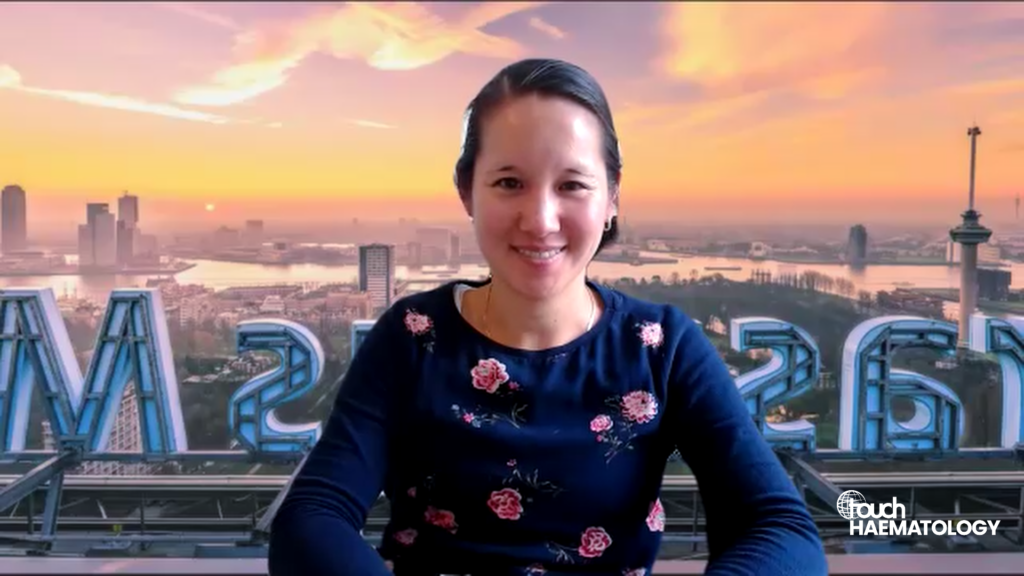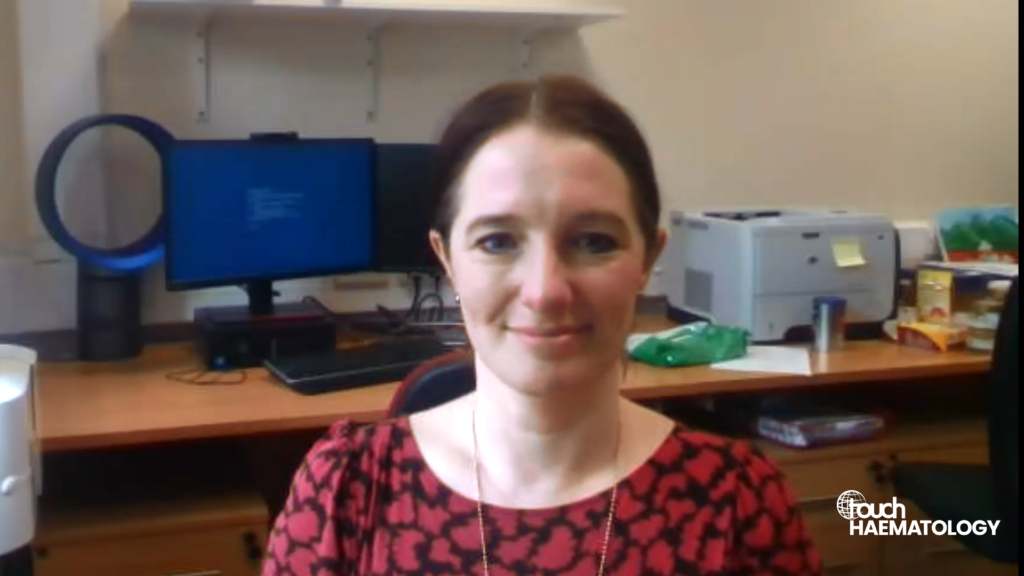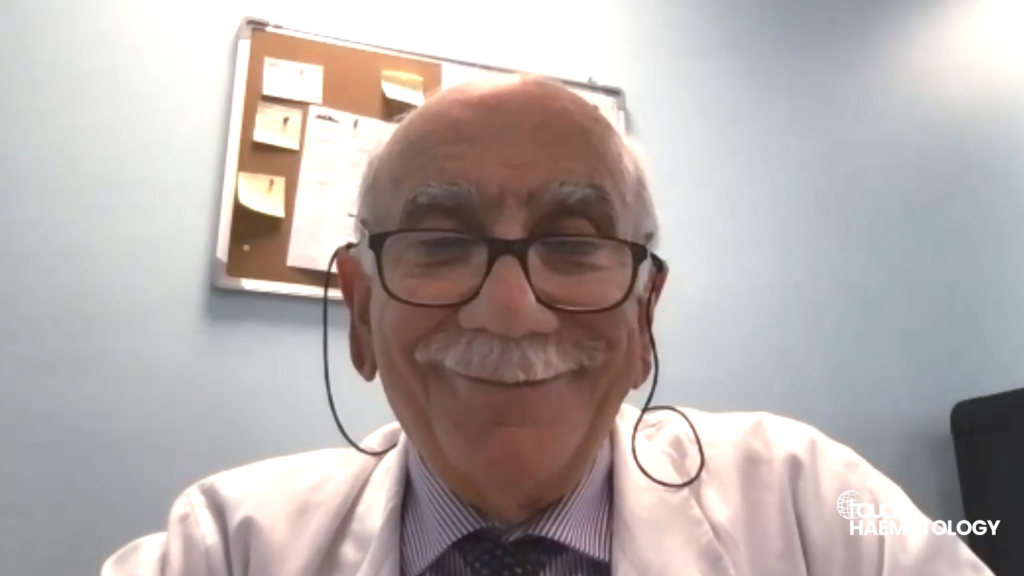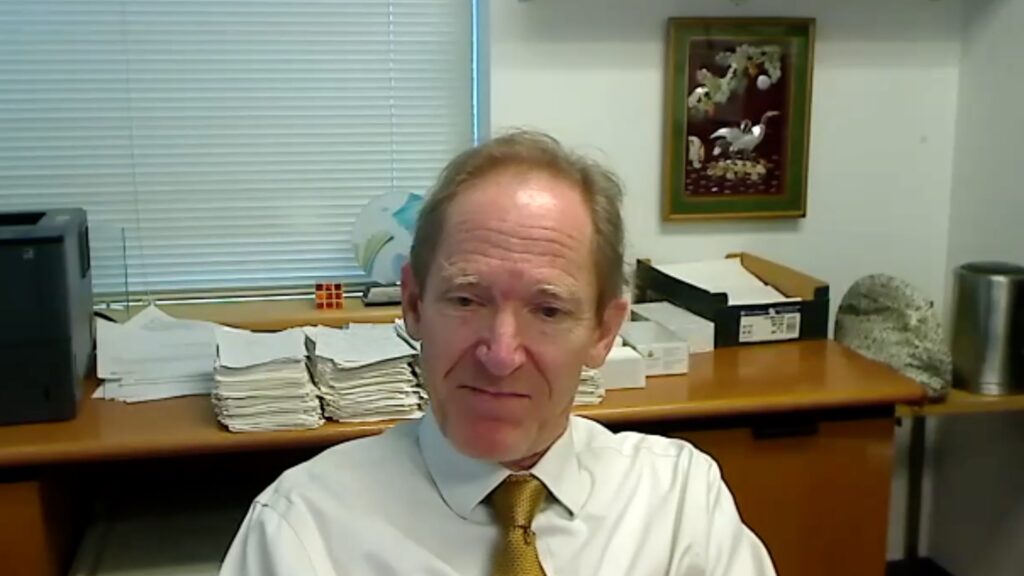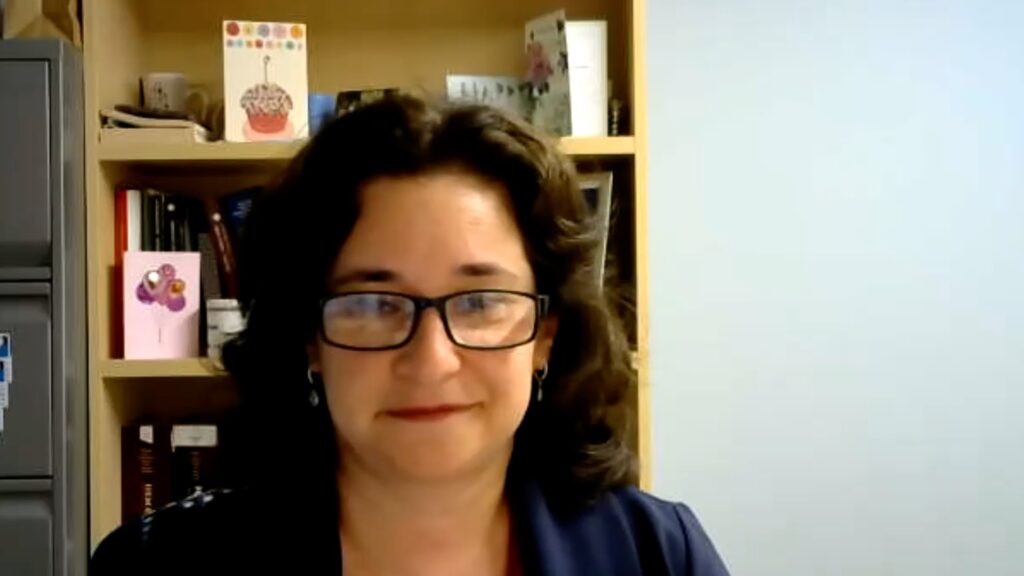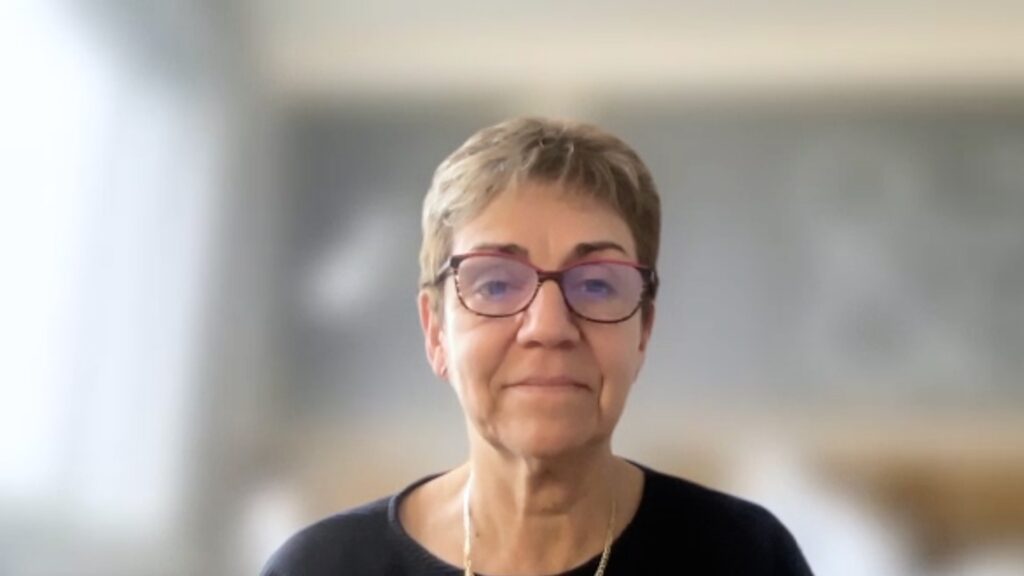We caught up with Prof Jorge Cortes (Georgia Cancer Center, Augusta University, GA, USA) to discuss his highlights from the recent EHA 2023 Congress, including two clinical trials that investigated the use of quizarpenib in patients with acute myeloid leukaemia.
Abstracts discussed:
Abstract S130: ‘Preliminary Results of QUIWI: A Double Blinded, Randomized Clinical Trial Comparing Standard Chemotherapy Plus Quizartinib Versus Placebo in Adult Patients with Newly Diagnosed FLT3-ITD Wild-Type AML‘ (0:13)
Abstract S131: ‘A Randomised Assessment of the Sequential Addition of the Kinase Inhibitor Quizartinib to Intensive Chemotherapy in Older Acute Myeloid Leukaemia (AML) Patients: Results From the NCRI AML18 Trial‘ (3:37)
Disclosures: Jorge Cortes is a consultant for Novartis, Pfizer, Jazz, BMS and Rigel. He has received grant/research support from Pfizer, Novartis and Abbvie.
Support: Interview and filming supported by Touch Medical Media Ltd. Interview conducted by Atiya Henry.
Filmed as a highlight of EHA 2023.
Transcript
My name is Jorge Cortes. I am the Director of the Georgia Cancer Center at Augusta University.
Well, I want to highlight a couple of studies that are, that I found particularly interesting, and they seem to be, in some ways, conflicting with each other, but they open some good questions and good possibilities for patients with AML. These two studies are related to the use of quizartinib in patients with acute myeloid leukaemia.
The first study is a study, a randomized study, called the QUIWI trial. It’s a phase 2 study for patients with newly diagnosed acute leukaemia that are FLT3-negative and this is important because we know that quizartinib is FLT3-inhibitory, and it’s recently shown in a randomized study that, for FLT3-mutated patients, it prolongs survival significantly when combined with chemotherapy, the drug is currently being evaluated by the regulatory authorities for possible approval for that indication. But this study is for patients without the FLT3 mutation. And this is important in the context of prior therapy, prior studies that we did some years ago where patients with the drug showed about a 30% response rate in patients without the FLT3 mutation as a single agent refractory relapse. So in this case, these are newly diagnosed patients, AML without FLT3 mutation, and they received the therapy with 3+7 standard chemotherapy, idarubicin or cytarabine, with placebo or with quizartinib, and the primary endpoint was event-free survival. And, of course, there was endpoints for survival and response rate and so on. And then, the median age of these patients was 57-58, were balanced between the two studies. There was a cap at the age of 70. So all the patients were younger than 70. And, so, there were other mutations, NPM1 and so on. There were a few patients that had the tyrosine kinase domain mutation, not the ITD, again, that was an exclusion. The kinase domain mutation is important because this is arguably insensitive to quizartinib. So the bottom line is that the event-free survival in this study showed a significant benefit for patients treated with quizartinib with a median of 16.5 months compared to 10.6 months for the patients treated with the placebo, with the chemotherapy alone. And this also was significant in favor of quizartinib for overall survival. The median survival was not reached for quizartinib, and it was 20 months for the patients treated with the placebo. So very, and the interesting thing is that the response rate was not different. It was about 70-73% and 71% respectively, the CR plus CRi. So there was not much difference in response. It seemed to be just better responses.
The other study, however, is another randomized study, this one coming from the UK, the NCRI AML18 trial. And in this study, patients were, again, with the newly diagnosed patients and these are older patients, they were older than 50, and the median age was 68. And they were randomized to receive idarubicin and cytarabine plus gemtuzumab, and with quizartinib or not with, you know, with or without quizartinib. And so the outcome here showed that there was no difference in the overall survival between the quizartinib patients and the non-quizartinib treated patients, say, overall. Now, this included both FLT3 mutated and FLT3 non-mutated patients. There was a trend for a statistical improvement for the FLT3 mutated patients. It was not statistically significant, but there was a trend with medians of 33 and 26 months. But it was not statistically significant.
So, interesting results, which open the possibility that there may be something for patients that are not FLT3 mutated with quizartinib that we still need to explore. It seemed to be better in the younger patient population, not in the older patient population, the positive study used mostly exclusively FLT3-negative patients. The negative study included FLT3 mutated and non-FLT3 mutated. It used chemotherapy that also contain fludarabine and gemtuzumab. Those could alter the results, but I find these results fascinating, and I do think that we certainly may have something else there in addition to its known benefit for patients that have a FLT3 mutation.
Subtitles and transcript are autogenerated


